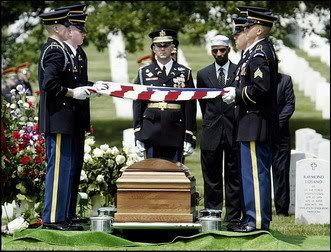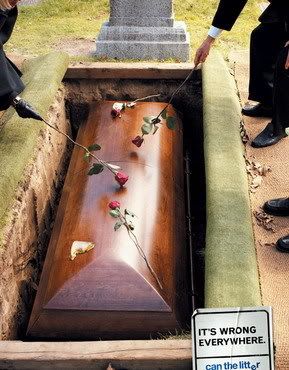Primarily they care and safeguard the deceased person until final disposition, including embalming and restorative work. A growing number of funeral directors are trained as grief counselors to help families through the bereavement process. They also arrange and provide an orderly series of events that finalize the funeral, the final disposition, and legal paperwork so the family can proceed forward. They also provide the physical establishment in which all of this can be accomplished.

What purpose does a funeral serve?
The funeral and the ceremony that accompanies it are indeed very important. For those who are left behind, a funeral provides a place for family and friends to gather for support and to reminisce; an opportunity to celebrate the life and accomplishments of a loved one; a chance to say goodbye; and the focal point from which the healing process can begin. The funeral identifies that a person's life has been lived, not that a death has occurred. It is also important to notify the community that this person has died. There are people beyond the immediate family who have the right to grieve a death. For instance, what would have happened in the United States if there had not been a funeral for President John F. Kennedy?
Are the services of a funeral director necessary to bury the dead?
In most states, no. But each state does have different regulations. You should call the local department of health to find out exactly what your state does require.
Do funeral directors get to take advantage of the bereaved?
The most important quality that enables the funeral director to provide services in the community is his or her reputation for honesty and good will. In fact, a good reputation is the key factor in being able to stay in business. If a particular funeral director took advantage of the bereaved, it would not be long before the community responded to those actions by going to a different funeral director.
Is a funeral or memorial service always held in a funeral home or place of worship?
A service can usually be held at any location that family and friends feel would be comfortable and appropriate. Your funeral director can assist with arranging a meaningful service.
Can a function less formal than a funeral or memorial service be arranged?
A Gathering of Friends is a less formal event. It allows family and friends to share their loss and share treasured memories of the deceased. A Gathering of Friends may include light refreshments and can be held at any appropriate location, including an accommodating funeral home, a park, a restaurant or the home of a family member or friend.
Is it ok to have a viewing and not a service?
Yes, if that is the wish of the family, the funeral director will arrange designated times for calling hours, have the times published in the newspaper and simply add to the obituary that services will be private or at the convenience of the family. This information will make it clear to the public as to arrangements, and fulfill the wishes of the family.

What are the options concerning the time of a service?
While most services are held in the morning or afternoon, some families are now choosing to have services held in the evening hours for the convenience of family and friends. This enables more people to attend the service who otherwise might be unable to be excused from their place of employment during the day.
How soon after or long after a death must an individual be buried?
This may vary by state so check with your local funeral director. Considerations include the need to secure all permits and authorizations, notification of family and friends, preparation of cemetery site and religious considerations. For example, Orthodox Judaism requires that the body be interred within 24 hours of death. Some states have limitations on the maximum length of time allowed to pass prior to final disposition. Consult your local funeral provider for any applicable regulations.
from - www.icfa.org
No comments:
Post a Comment